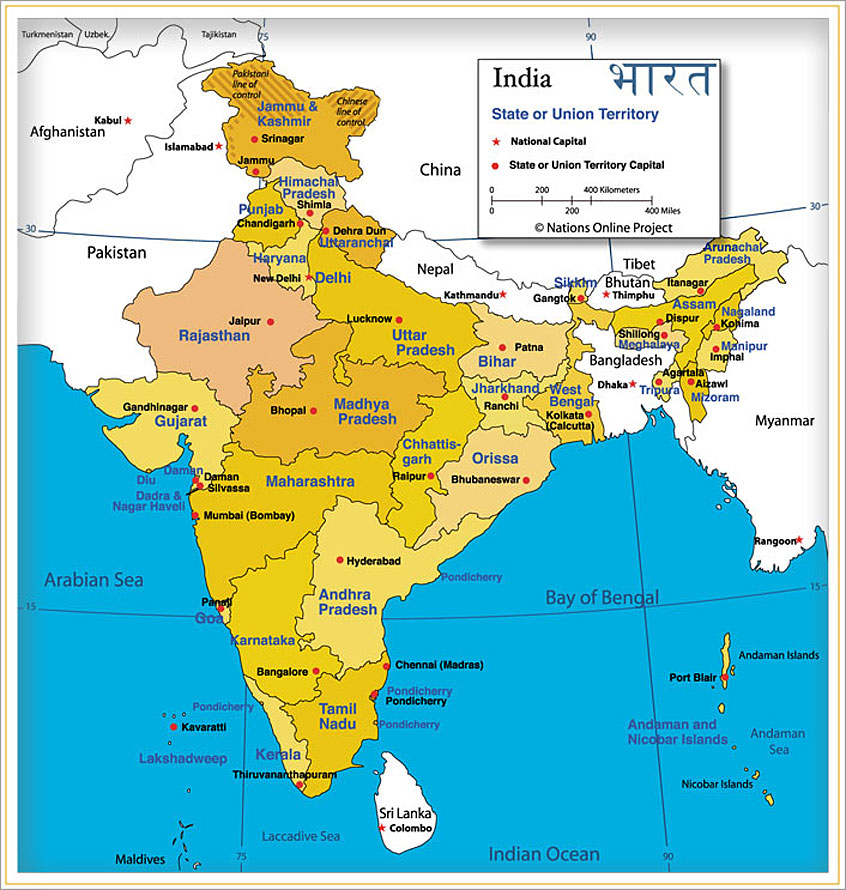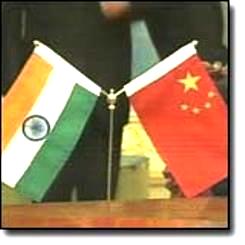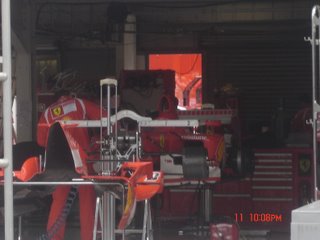
*I've emailed this article alrady to some people almost a month ago. But, due to courseworks & progress tests of my bloody ACCA course, I can only manage to post it in this blog now.*
Andre Vltchek's article below (Vltchek 2007, link: http://www.worldpress.org/Asia/2637.cfm)
portrays the heart-rending situations faced by Indonesia these days. Is it really the face of the country today? Well...before you read Vltchek's article, here's some little facts that i reckon we all need to know about Indonesia...
This is the country of thousand islands, the world's largest archipelagic state, the home of the spice islands, the world's 3rd largest democracy who once attracted foreign powers into the archipelago by its wealth of natural resources. This is the country that John Perkin once considered as: "a land of mysticism, myth, and erotic beauty; an elusive treasure sought but never found by Columbus....whose history and legends represent a carnucopia of larger-than-life figures" (Perkins, 2004, p. 23). This is the country who is rich in culture with about 300 ethnic groups, each with cultural differences that have shifted over the centuries which makes modern-day Indonesian culture is a fusion of this diversity. The national motto, " Bhinneka tunggal ika" ("Unity in diversity") is supposed to reflect the amalgamation of a myriad cultures, languages, and ethnic groups that shape every aspect of the country.
BUT... This is also the country that, today, is considered as one of the third world countries, has been coloured by and suffered from endless disasters, crisis, corruptions, poverty, and many more unpleasant pickles clouding and wounding the nation. How's this wrecking mess happened? What's been the root of all these problems?
Blaming the government, the nature itself, and the society won't be the solutions to these questions. Perhaps..how the country (government + society - collectively) tackles and solve the problems, be it the prevention deed or the post-catastrophe scenario, should be changed, to be more effective and well-fitted for the good of the country itself together with its people . Not only to redevelop the country itself domestically, but also to re-create its image on the international stage - to boost the country's image to a level where it deserves to be. Because, after all, the country is not really poor; but, it is its people who, indeed, think poorly (probably not all, but many of them, at least), as in their poor sense of nationalism and the taking-things-for-granted attitude towards the country.
As the world needs more than one superman, Indonesia does need a lot of 'supermen and superwomen' as well. The country needs thousands of superman's kind of deeds to deal with its complicated web of heart-rendering and problematic situations. Foreign aid alone doesnt serve to be the only solution. The country hopes and yearns for realizations and helping hands from its own people - no matter in what form and how small the helps are. And that's what i'm intending to do - sooner or later. Because i am an Indonesian...a proud one. Tuesdays, March 13, 2007
-Leitizia-

Here's Vltchek's article... Enjoy!
Indonesia:
Natural Disasters or Mass Murder?
Andre Vltchek
Worldpress.org correspondent
January 16, 2007
 |
| In the aftermath of the 2005 Tsunami in Aceh, Indonesia, some boats ended up on piles of rubble. (Photo: Andre Vltchek) |
Another day, another unnecessary loss of lives: at least 28 people were killed and 7 are still missing on the small island of Tahuna, off Indonesia's Sulawesi, in the aftermath of ravaging Jan. 12 landslides caused by heavy rains and flooding.
At an alarming rate, Indonesia is replacing Bangladesh and India as the most disaster-prone nation on earth. Whenever the word "Indonesia" appears on the list of headlines on Yahoo news, chances are that another enormous — and often unnecessary — tragedy has occurred on one of the islands of this sprawling archipelago.
Airplanes are disappearing or sliding off the runways, ferries are sinking or simply decomposing on the high seas, and trains crash or get derailed at average rate of one per week. Illegal garbage dumps bury desperate communities of scavengers under their stinking contents. Landslides are taking carton-like houses into the ravines; earthquakes and tidal waves are destroying coastal cities and villages. Forest fires from Sumatra are choking huge areas of Southeast Asia.
 |
| Scavangers looking through the rubble in Aceh. (Photo: Andre Vltchek) |
The scope of disasters is unprecedented, and it absurd to discount them simply as the nation's bad luck, or to blame the wrath of the gods or nature. Corruption, incompetence and simple indifference by the ruling elites and government officials are mostly to blame. It is poverty, and a lack of public projects that kill hundreds of thousands of desperate Indonesian men, women and children.
Since the 1965 U.S.-sponsored military coup that deposed Sukarno and installed the corrupt military regime of staunch anti-communist, pro-market dictator General Suharto, Indonesia has escaped serious scrutiny by the West's media and governments. After Suharto stepped down in 1998, the country has been hailed by said media as an emerging and increasingly tolerant democracy.
Some of these disasters are man-made; almost all of them are preventable. With closer scrutiny, it becomes obvious that people die due to almost non-existent prevention, lack of education (Indonesia spends the third least amount on education as percentage of its GDP, after Equatorial Guinea and Ecuador) and a savage pro-market economic system which allows enrichment of very few at the expense of the majority — who live on under 2 dollars a day. Ugly conclusions can be drawn, which casts an unflattering light on the way the present-day Indonesian society functions. However, continuing to avoid exposure would doubtlessly lead to further loss of many precious lives.
Indonesia is profit-driven to the extreme. It is also one of the most corrupt nations on the face of the earth, and there seems to be no immediate profit to be made from implementing preventive measures. Dams and anti-tsunami walls are considered as public works almost everywhere else. It seems that the word "public" has almost disappeared from the lexicon of those who make decisions in Indonesia. Short-term profits for a particular group of individuals are given much higher priority than long-term gains for the entire nation. The moral collapse of the nation is reflected in the scale of values — corrupt, but rich, individuals command incomparably higher respect than those who are honest but poor.
Ferries are sinking not because of high winds and waves, but due to overcrowding and poor maintenance. More precisely, they are allowed to be overcrowded and badly maintained. Everything is for sale, even the safety of thousands of passengers. Companies care only about their profits, while government inspectors are mainly interested in bribes. The recent well-publicized sinking of a ferry, Senopati Nusantara, killed more than 400 people, but it was just one of hundreds of maritime disasters that occur in Indonesia each year. While there are no exact statistics available (for predictable reasons, the Indonesian government makes sure to avoid publishing comprehensive comparative data), some maritime routes lose three or more vessels a year.
The Indonesian airline industry has one of the worst safety records in the world. Since 1997, at least 666 people have died in eight separate airplane crashes in the country. Some of the pilots are so badly trained that planes sometimes skip off the runway, or miss it altogether. Maintenance is another issue: flaps often don't function properly; wheels cannot retract properly after take-off; and seldom-changed tires have a tendency to blow out upon touchdown. It is a mystery as to how some airplanes — particularly old Boeing 737s flown by almost all Indonesian airlines — make it through the inspections.
After consulting with local civil aviation officials (who obviously do not want to be identified), it was ascertained that the navigation systems at several major Indonesian airports are in disastrous state — particularly those at Makassar in Sulawesi, and Medan in Sumatra.
On average, there is one deadly train accident every six days in Indonesia, many caused by the lack of gates at its approximately 8,000 crossings. By comparison, Malaysia suffered no fatal train accidents for the 13 years up to and including 2005 (the last year for which statistics are available).
Despite the fact that Indonesia has a relatively small number of cars per capita, its roads are the "most used" of any nation in the world (second only to Hong Kong, which is not a country) — 5.7 million vehicle-kilometers per year on the road network (2003, "Pocket World in Figures"—The Economist Books, 2007 Edition). Despite this epic congestion and the generally slow pace of traffic, more than 80 people die on average every day on Indonesian roads, mostly due to the terrible state of the infrastructure and poor law-enforcement, according to The Financial Times.
Earthquakes alone do not kill people. Poor construction of houses and buildings are the main culprits, together with the lack of preventive measures and education. It is a well-known fact that Indonesia is prone to natural disasters; that it is located on the Pacific Ocean's "ring of fire" of volcanoes and earthquakes. But the poor can count on no massive public housing projects (like those in neighboring Malaysia), which could withstand earthquakes. Almost every family is on its own; members have to design and build their own dwelling. Major earthquakes kill hundreds, sometimes thousands of people, leaving hundreds of thousands homeless. At least 5,800 people died and 36,000 injured on May 27, 2006 during a 6.3-magnitute earthquake, which hit central Java near the historic city of Yogyakarta. Primitive infrastructure, inadequate medical facilities and corruption in distribution of aid are to blame for the unacceptably high number of casualties after each major tremor.
 |
| A gravedigger smoking next to wrapped bodies in Aceh, January 2005. (Photo: Andre Vltchek) |
Illegal logging and deforestation are the main reasons for the landslides, which often occur after heavy rains and flooding. The individuals who are responsible for the forest fires in Sumatra and elsewhere are commonly known, but officials are reluctant to make arrests as those to blame for de-forestation are often rich and well connected in a country where even justice is for sale. There are countless solutions to this problem, including law-enforcement, inspections and providing an alternative means of livelihood to those communities that are so desperate that they are literally forced to participate in digging their own graves by destroying the environment, that in return annihilates entire communities. But almost nothing is done, as illegal logging is a huge, lucrative business that can afford to grease hundreds of willing palms.
Last month, dozens of people were killed in landslides and flush floods in northern Sumatra Island, which forced some 400,000 people to flee their homes. In June 2006, floods and landslides triggered by heavy rains killed more than 200 people in a southern Sulawesi province.
Tidal waves, known as tsunamis, killed more than 126,000 people in Aceh province in December 2004. Not only was response of the Indonesian government and military inexcusably slow and inadequate, large portions of the massive amounts of foreign aid disappeared in corruption. Instead of helping victims, many members of the Indonesian military were extorting bribes from relief agencies and destroying precious supplies or drinking water and food in cases where the bribes were not paid.
In a scandalous land-grab sponsored by the government, many victims were prevented from returning to their own land while children were forcefully separated from their parents (who lost birth certificates during the tragedy) and "adopted" by religious organizations, some falling victim to human trafficking. More than two years after this devastating tragedy, hundreds of thousands are still living in temporary housing.
 |
| Children from Aceh. (Photo: Andre Vltchek) |
Many victims of yet another tsunami, which hit the coast of southern Java on July 17, 2006, are still waiting for any substantial help. By the official count 600 people died, but the real number was almost certainly much higher. Indonesian officials received an early warning from Japan but refused to act, later claiming that there was not much they could do, as the area was not equipped with the sirens or loudspeakers.
Indonesia often suffers from some man-made disasters beyond any comprehension and comparison. A recent "mud flood" inundated entire villages right outside Surabaya. It occurred due to inadequate safety procedures by a gas exploration company (co-owned by one of the cabinet ministers). This "accident" displaced more than 10,000 people and covered over 1,000 acres of land with hot mud, destroying Surabaya's only motorway as well as the major railway line. Garbage buried entire communities of poor scavengers at an illegal dumping site outside Bandung. There are many more cases of a similar nature, but the complete list would require too much space — probably an entire book would need to be dedicated to the subject.
The question is when will the Indonesian people say that enough is enough, and demand accountability and justice, exact statistics and concrete blueprints for solutions? In almost any other country, two recent disasters — the grizzly sinking of the Senopati Nusantara and the "disappearance" of Adam Air Boeing 737 with 102 people on board — would be more than enough to force cabinet ministers to resign. In Indonesia, these tragedies are seen (or presented) as yet another misfortune without holding anyone responsible or accountable.
The Indonesian press and mass media report each and every disaster in detail. However, they are failing to establish that what is happening there is extraordinary and intolerable; that there is probably no other major country in the world that is experiencing such unnecessary and devastating loss of human lives due to calamities that are either man-made or easily preventable. To link the enormous number of lost human lives in countless disasters with corruption and the socio-economic system is actively discouraged. For example the Jakarta Post, the leading daily newspaper in Indonesia, recently suppressed this article, refusing to publish it.
Since December 2004, Indonesia has lost around 200,000 people in various disasters, not counting car accidents and military conflicts ranging all over its archipelago. That's more than Iraq lost in the same period of time, and more than Sri Lanka or Peru during their long civil wars. Indeed, many Indonesians are experiencing lives that are as dangerous and hazardous as those in war-torn parts of the world. However, most of them don't realize it, as comparative statistics are not available or are suppressed.
Indonesia is poor, but it is still in the position to protect some of its most vulnerable citizens. The main problem is that there is no political will. There is plenty of concrete and bricks to build dams and walls against tsunamis, and to reinforce the hills around towns that are in danger of being buried by landslides. One just has to look around Jakarta where dozens of unnecessary new shopping malls are growing in several locations, and where kitschy palaces of corrupt officials cover acres of land.
The unwillingness to deal with the problems is rooted mostly in corruption. Local companies and officials have developed a unique ability to make profits from everything, even from disasters and the suffering of millions of fellow citizens. In simple terms, corruption is stealing from the public. But when the overall toll has to be calculated in hundreds of thousands of lost human lives, it becomes mass murder.











 Here's Vltchek's article... Enjoy!
Here's Vltchek's article... Enjoy!













